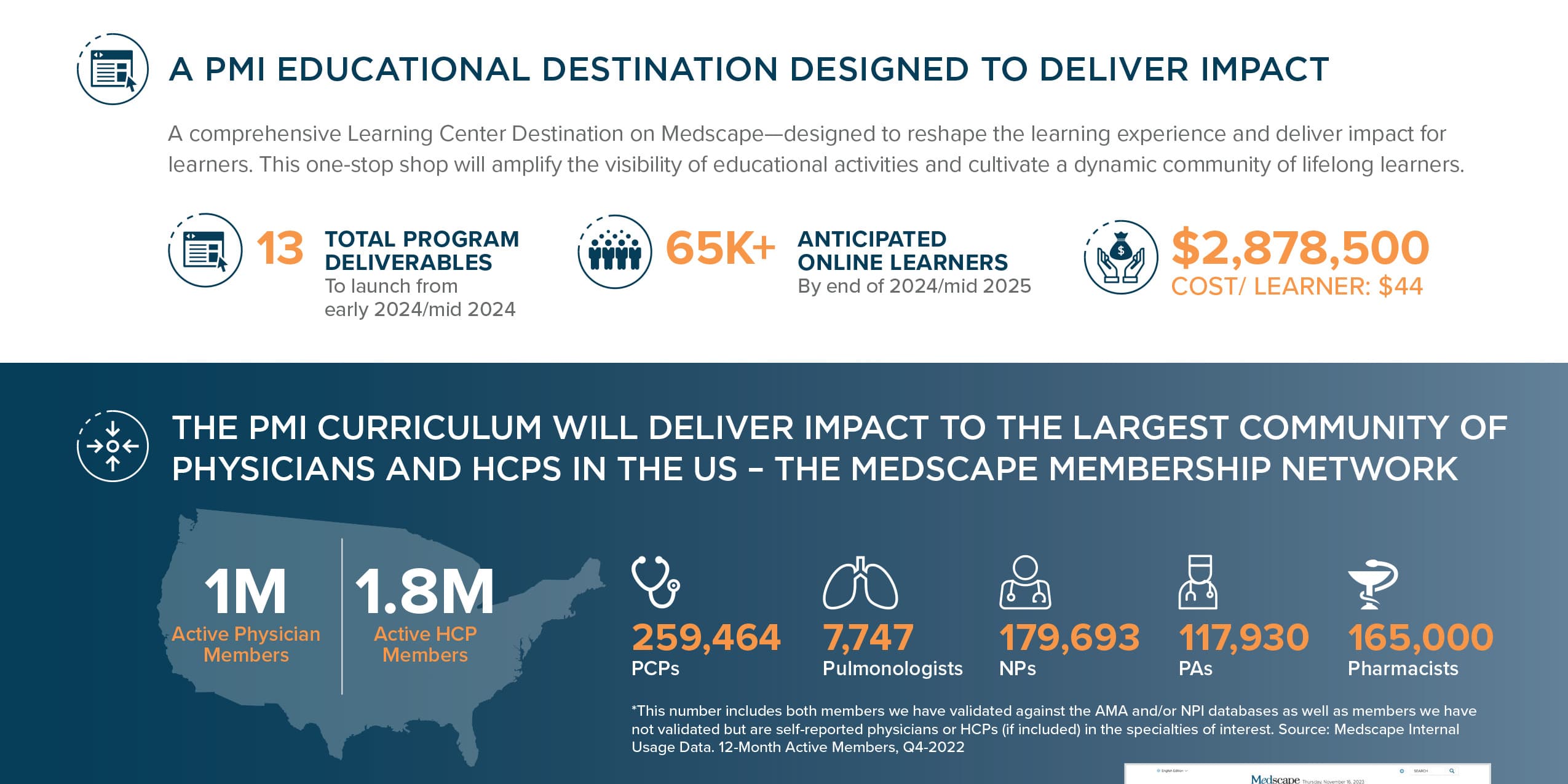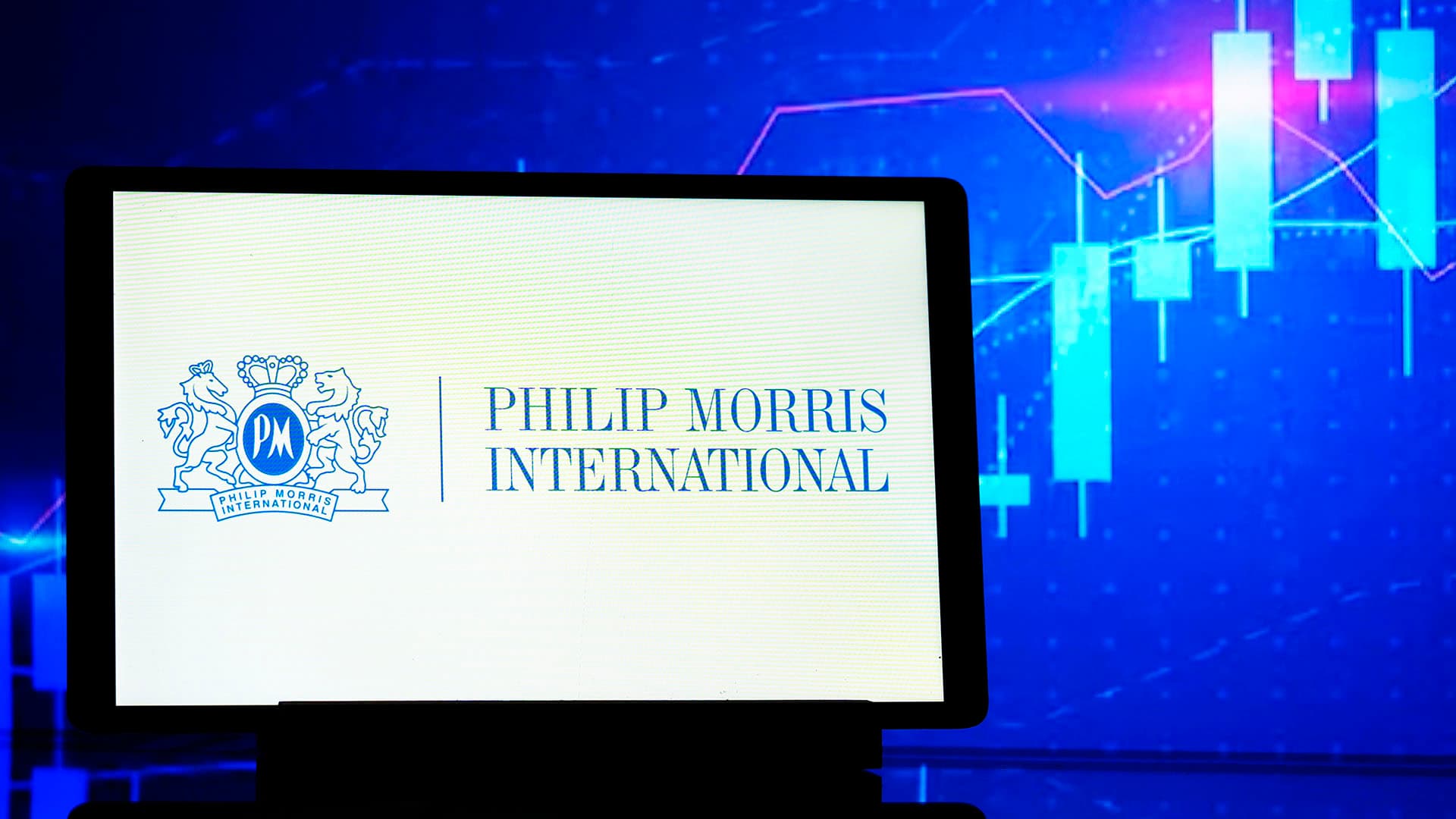This story is published in partnership with The BMJ.
One of the largest medical education providers in the United States has terminated its multimillion-dollar deal with Philip Morris International following public outcry over the tobacco giant’s sponsorship of its smoking cessation courses.
The move comes after The BMJ revealed Medscape’s partnership with the world’s second biggest tobacco company earlier this month. An internal document shared with The Examination and The BMJ now reveals the scale of the deal: Philip Morris International was due to pay $2.9 million in order to deliver a year-long “PMI curriculum” to be sent to the provider’s vast network of healthcare professionals.
The Medscape deal appears to be part of a strategy by Philip Morris International to sponsor continuous professional development courses for medical professionals around the world. The Examination has discovered that the tobacco company has also sponsored webinars on “harm reduction” across the the Middle East and in South Africa.
Medscape’s continuous medical education (CME) courses allow professionals to gain credits to maintain their medical licenses. Medscape was aiming to deliver the Philip Morris International sponsored courses to more than 65,000 people in its network, which includes almost 8,000 pulmonologists.
Under the Philip Morris International deal, five courses were released in late February and March 2024, including ones called “Health Impact of Tobacco Products: What Do We Know in 2024?” and “Harm Reduction from Tobacco: An Evidence Based Discussion.”

Medscape has removed the sponsored courses from its website and established a policy that it will no longer accept funding from any organization affiliated with the tobacco industry, according to an email sent by the general manager of Medscape Education to National Jewish Health, a leading U.S. respiratory hospital.
The email, seen by The Examination said, “Upon reflection, we acknowledge that the use of this funder was a misjudgment that was out of character for Medscape Education and that doing so may have disappointed our members.”
Medscape did not respond to requests for comment.
‘Egregious breach of health ethics’
The Examination has spoken to multiple Medscape staff members, who all asked to remain anonymous due to fear of losing their jobs, and expressed shock that the medical education provider would partner with the world’s second biggest tobacco company.
The employees labeled the sponsorship a “marketing ploy” to sell more vaping products and an “egregious breach of health ethics.” Accreditation Council for Continuing Medical Education, the organization that accredits Medscape’s educational courses, told The Examination it is “pursuing an inquiry” into the deal after receiving a complaint.
One Medscape insider, who wanted to remain anonymous because of what they claim to be a company culture that discourages people from speaking up, said the Philip Morris International partnership sets a “dangerous precedent”.
“It doesn’t give me much hope for independent medical education,” they said. “It is supposed to be trustworthy and unbiased. To not be able to trust that as a learner is going to change everything.”
Subscribe to our newsletter
Global health reporting, straight to your inbox
An internal Medscape document also reveals that under the terms of the proposed deal with Philip Morris International, Medscape would also roll out out further ‘“PMI”-TV’courses that would be in a television-style format. Proposed episodes included “Focus on Harm Reduction in Certain Patient Populations: Why Smoke-Free Products?” and “Counseling Patients on Nicotine Replacement Therapy: One Size Does Not Fit All.”
Philip Morris International claims it is pursuing a “smoke-free future” with its new products such as e-cigarettes, heated tobacco and nicotine pouches, but this claim has been questioned by health advocates due to the company’s aggressive marketing of cigarettes in other countries. In France, the company has even been sued by an anti-smoking advocacy group for alleged propaganda regarding its smoke-free messaging. The tobacco giant has denied the allegations.
“Health agencies around the world have recognized the beneficial role that smoke-free products can play to improve public health. We are concerned that known special interest groups are actively blocking medical education that the U.S. Food and Drug Administration and medical community have determined are needed. These actions stand to prolong use and possibly increase consumption of combustible cigarettes—the most harmful form of nicotine use,” a Phillip Morris International spokesperson said in an email to The Examination.
A global strategy
In Saudi Arabia, Kuwait and the United Arab Emirates, a Philip Morris International subsidiary was sponsoring a continuous medical education course for healthcare professionals called “Harm reduction in healthcare/smoking and the impact on public health.”
The company’s South African subsidiary sponsored webinars that were promoted as being accredited for continuous professional development. They were run by the Alliance of South African Independent Practitioners Associations, an organization that represents the interests of private doctors, and the topic was described as “Harm Reduction in Public Health” and “Harm Reduction in Healthcare. Fact or Fiction?”
The sponsorship “jeopardizes public health” and undermines the integrity of medical education, said Sharon Nyatsanza, deputy director of the National Council Against Smoking in South Africa.
“PMI continues to invest in cigarette brands, aggressively markets cigarettes and is far from ending the sale of cigarettes,” Nyatsanza said. “The tobacco industry aims to sow confusion and debate in credible platforms, to influence the medical and scientific debates. This is also a way to improve their reputation, to re-frame the industry as ‘part of the solution,’ rather than being the problem that they are.”
George Aldrich, chairperson of the ASAIPA, said the courses were independent but admitted he did not know that Philip Morris International was a tobacco company and had not reviewed the material.
In an internal email Aldrich appears to have inadvertently sent to The BMJ, he wrote, “The only issue is the sponsor of this CPD, but I did not even know who Philip Morris is? Unfortunately, I did not attend this CPD to know what was presented.” ASAIPA told The Examination it was unavailable for comment.
Contents of the Medscape courses were called out by its staff for appearing to push e-cigarettes over other cessation programs such as varenicline, one of two medicines approved by the FDA to help people give up cigarettes, or nicotine replacement therapies. One employee, who asked to remain anonymous, told The Examination that the courses were “riddled” with content promoting vaping as the alternative to smoking, and that it was “woven into the whole fabric of the thing.”
Another Medscape employee said that abstaining entirely or using other programs such as medications are the most obvious choice for harm reduction, but the courses are “all about pointing towards e-cigarettes.”
In a recent investor presentation, Philip Morris International said it was making “good progress” in the rollout of its Veev e-cigarette brand after a recent relaunch of the device.
One slide from the Medscape course obtained by The Examination says it is a “myth” that e-cigarettes are an ineffective smoking cessation strategy despite them not being FDA-approved for smoking cessation.
The FDA says approved medications, including nicotine replacement therapy and varenicline,have been proven to be safe and effective and “should be the first line of therapeutic treatment for adults seeking to quit smoking.”
FDA Commissioner Robert Califf recently said the term “harm reduction” has been co-opted by the tobacco industry as a “vast advertising campaign” during a hearing of the U.S. House Committee on Oversight and Reform this month. He also warned that there were concerns about the long term use of vapes.
“As a pulmonologist, I find it just simply outrageous that Medscape is laundering Philip Morris' propaganda with this CME,” said Nick Mark, a doctor in the Seattle area.
Mark also noted that the slide decks for the courses did not include disclosure of Philip Morris International’s involvement.
“As somebody who's seen hundreds if not thousands of talks that had CME credit attached to them, I don't think I ever recall seeing one that didn't have a disclosure slot,” said Mark. “The organizations that I'm used to interacting with such as the American Thoracic Society wouldn't even touch somebody who had been touched by the tobacco industry.”
Medscape’s choice of speakers, or ‘faculties’, for the courses has also caused consternation internally due to their links to the tobacco and vaping industries.
Speakers include dentist Brad Rodu, who has received funding from the tobacco industry for research and spoke at the industry sponsored Global Tobacco and Nicotine Forum conference in October 2022, and psychiatrist Sally Satel, who in 2016 purportedly offered her help 'as appropriate' with the scientific advisory board of Pax Labs, the predecessor to e-cigarette maker Juul.
Rodu said he received no honorarium payment for the speech at the tobacco industry conference, which was also attended by the director of the FDA’s Center for Tobacco Products, but added he asks for “reimbursement for travel expenses in order to preserve scarce university resources.” Satel did not respond to The Examination’s questions about the Medscape courses or whether she accepted a role on Pax Labs’ board.
“All accredited providers are required to ensure their content is scientifically valid and unbiased,” said Graham McMahon, president of ACCME, which accredited the Medscape courses. “In follow-up to a complaint, the ACCME and the joint accreditors are pursuing an inquiry related to this matter.”
Mark also argued there was evidence of the Medscape courses “eliding key facts,” such as course materials referring to one academic study that compares e-cigarettes favorably to nicotine replacement therapy as a way of quitting smoking — without mentioning that 80% of the e-cigarette group were still vaping a year later.
The science around e-cigarettes is a constantly evolving field, which means the health impact is still relatively unknown. One study published earlier this month suggested vaping could be linked to an increased risk of heart failure.
“The other argument that I find absolutely ridiculous, is about the relative safety of the products,” Mark said. “If somebody is playing Russian roulette with two bullets, and you switch to playing Russian roulette with one bullet, that's not a safe activity and the net effect on society of having this harmful behavior, which is getting more children addicted to using tobacco habitually is a net harm. That's not harm reduction.”

